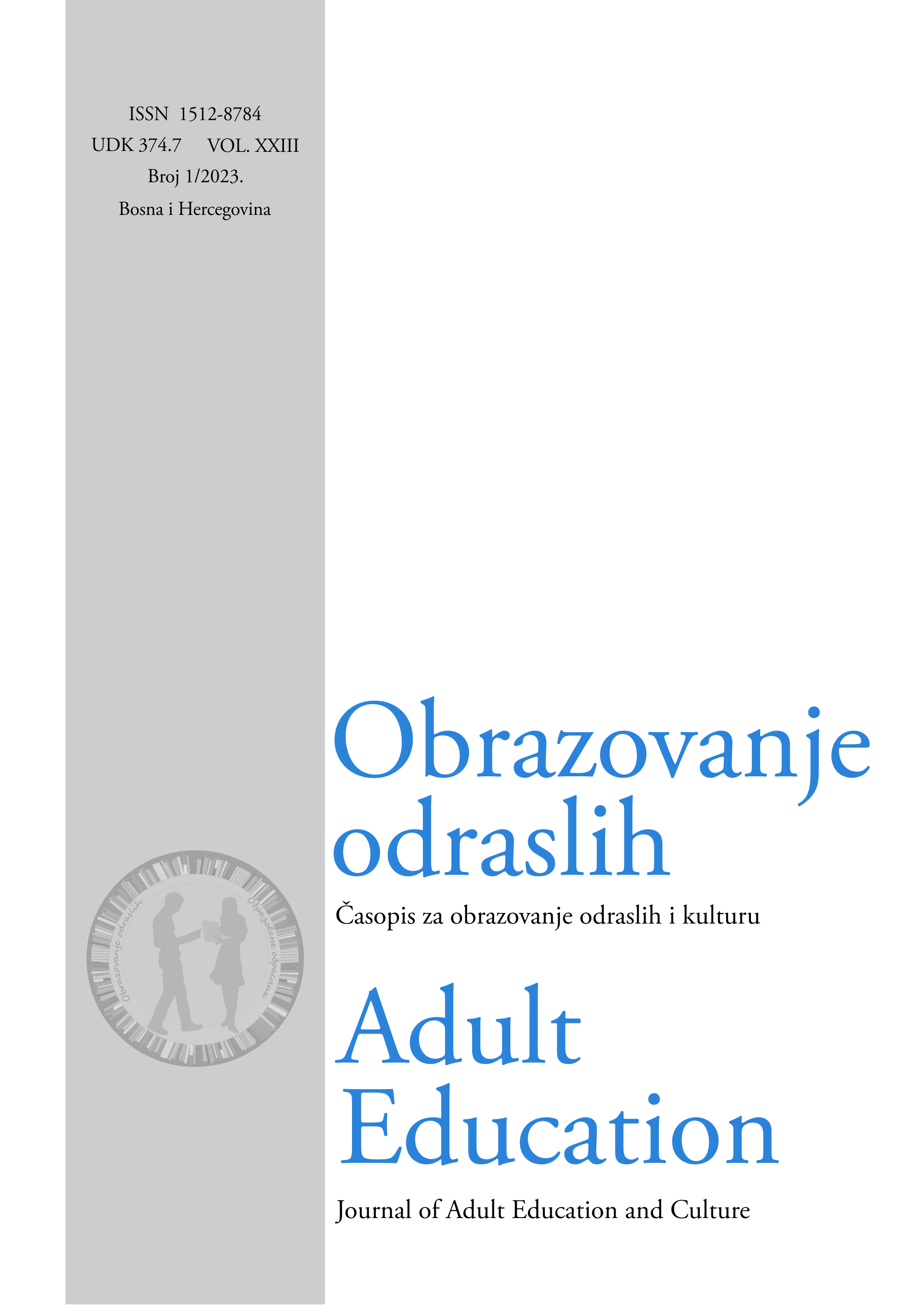Praktična inteligencija - jedna netipična empirijska provjera
Practical Intelligence - an Atypical Empirical Test
Author(s): Amir PušinaSubject(s): Social Sciences, Education, Adult Education
Published by: JU ‘’Bosanski kulturni centar Kantona Sarajevo’’
Keywords: practical intelligence; atypical approach to measurement;
Summary/Abstract: Using an empirical correlation non-experimental desing, the goal of the research was to examine the possibility of an atypical approach to measuring practical intelligence based on Sternberg's Theory of Successful Intelligence, within which practical intelligence in the school context is defined as the ability to think practically - translating theory into practice and abstract ideas into practical realization. It started from the following research questions and their corresponding hypoteses: (1) is it possible to measure practical intelligence by creating a valid and reliable instrument, atypical in terms of previous approaches and official, formal measurements and maesures of practical intelligence; (2) if such a possibility exists, what level of practical intelligence, in terms of the given criterion, do the participants exhibit inrelation to gender, age, type of study attendence and school success, and do they statistically significantly differ in this sense? A total of 14 male and 50 female students (N=64) of the Department of Pedagogy of the Faculty of Philosophy of the University of Sarajevo and the Academy of Music of the University of Sarajevo, with an average age of M=19.23 (SD=.99), were asked about basic demographic variables, school success and practical intelligence. The validaty of the Practical Intelligence Questionnaire was tested using a maximum likelihood factor analysis. The criteria, of which KMO test (.825) and Bartlett test χ (105) = 323.050, p<.001, communality ≥ .40 and χ test values, in the third step indicated an acceptable two-factor solution: χ (76) = 77,611; p = .427. Two interpretable factors that positively correlate with each other (r=.27, p<0.01) were singled out, explaining a total of 47.35% of the variance based on which, in addition to the total - SPM, scale of practical thinking, two subscales - SSPM1 and SSPM2 were formed. The Cronbach alpha coefficient of internal consistency as a measure of reliability was satisfactory on the total measure of practical intelligence (SPM α = .86) and the cognitive-motivational measure of practical intelligence (SSPM1α = .88), while the reliability criterion of minimum α = .70 was not reached on the measure emotional practical intelligence (SSPM2 α = .56). Thus, it could be strated that the first hypotesis - about the validity and reliability of the Questionnaire on practical thinking - was almost completely confirmed. The achieved level of practical intelligence, expressed through all three measures (SPM, SSPM1 and SSPM2), was above avarage considering the set criteria in both strata of the sample. There were no statistically significant relationships between these levels in relation to gender, age and school success, expect when it comes to the type of study, where the students of the Music Academy achieved higher scores on the scale of emotional practical intelligence. Thus, the second hypotesis about the average level of practical intelligence and the disconnection with other research variables was partially confirmed. It is therefore possible to measure practical intelligence atypically, informally, but psychologically and psychometrically based. Since, as far as is known, this is the first such attempt, the results about the above-average practical intelligence of student cannot be generalized or fully accepted without thorough further questioning.
Journal: "Obrazovanje odraslih" - Časopis za obrazovanje odraslih i kulturu
- Issue Year: XXIII/2023
- Issue No: 1
- Page Range: 19-38
- Page Count: 20
- Language: Bosnian

